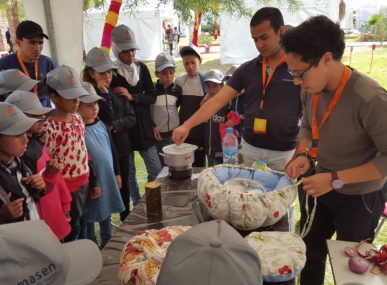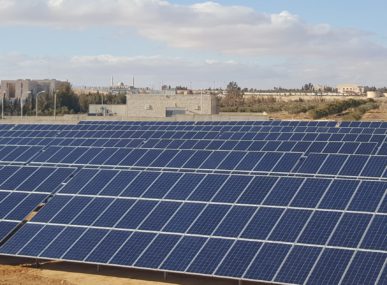The non-profit organization is called Qatrana Social and Economic Development Association (QASEDA). Its aim is to support the Bedouin community in creating local initiatives to employ themselves and fellow residents, as well as to start unconventional natural resource management projects.
Qatrana’s Bedouin history:
Residents of this region have not always called Qatrana home. Historically, people in the area were nomadic Bedouins who found ways to adapt and survive in the arid desert land. The Jordanian government has been attempting to introduce means of modernization to the community since the 1980s. This included providing permanent homes, running water, electricity, and livelihood through agriculture.
A challenge in Qatrana is that these introduced modernizations were not always effective, says Hamzeh Al Alayani, the President of QASEDA and lifetime resident of the town. “People without any training were all of a sudden getting jobs or going to university without their culture having ever exposed them to this,” he explains. “The Bedouin community found itself lost, so went back to their old-fashioned way of life.”
Today, many more Qatrana residents have university degrees, but unemployment — especially among the large youth population — remains an issue. Jordan’s unemployment rate in the second quarter of 2017 topped the 18% mark, most of which are women and youth.
Al Alayani says encouraging projects that combine traditional elements of Bedouin culture with the modern economy, as well as managing those projects within the community, will be good for both the local workforce and the environment.







